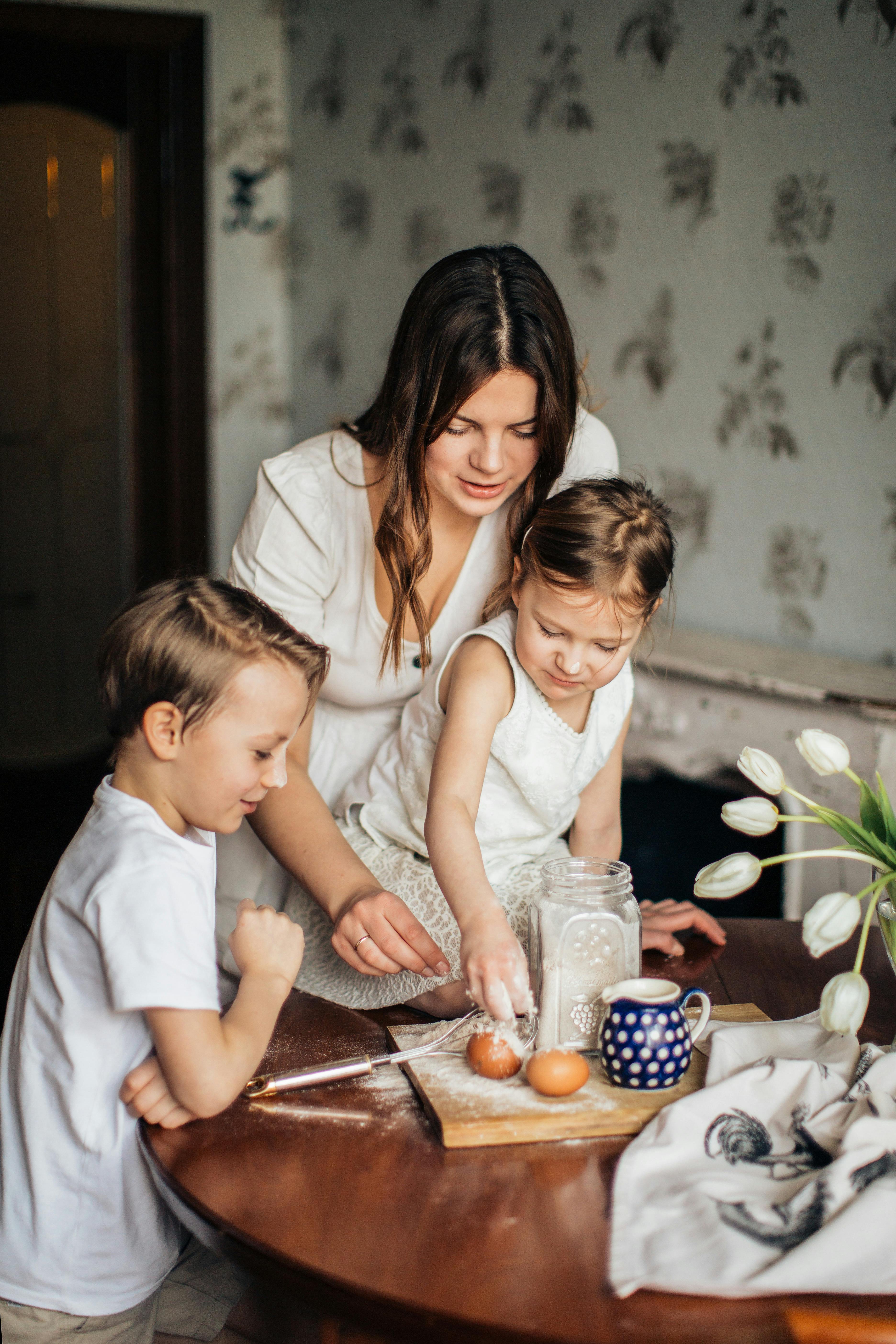The question of whether marriage brings happiness has sparked countless conversations, debates, and more than a few heated discussions on social media.
With headlines swinging between “Marriage is dead!” and “Single ladies rule the world,” it’s no wonder many women find themselves wondering: does walking down the aisle actually lead to walking on sunshine?
Recent data from the 2022 General Social Survey might surprise you, 40% of married women with children report being “very happy,” compared to just 22% of unmarried childless women.
But before you start planning a wedding or celebrating your single status, there’s much more to unpack about this fascinating topic.
What the Numbers Actually Tell Us
When researchers dive deep into happiness studies, married women consistently emerge as a notably content group.
The most recent comprehensive data paints a compelling picture that challenges many popular assumptions about modern womanhood and fulfillment.
The happiness hierarchy, according to multiple studies, shows married mothers at the top of the satisfaction scale.
This isn’t just a small difference we’re talking about, the gap is substantial and consistent across different research methodologies.
The 2022 General Social Survey, considered America’s premier social barometer, found that among women aged 18-55:
- 40% of married women with children reported being “very happy”
- 25% of married women without children felt the same level of contentment
- 22% of unmarried childless women described themselves as “very happy”
- 17% of unmarried mothers reached this happiness threshold
These findings align with research from the University of Chicago, which identified marriage as the most important differentiator between happy and unhappy Americans, creating what researchers call a “30-percentage-point happiness gap” between married and unmarried individuals.

When Social Media Meets Statistical Reality
Here’s where things get particularly interesting. While Instagram feeds overflow with #SingleAndThriving content and think pieces about the supposed misery of matrimony, the data tells a more nuanced story.
Social media narratives often suggest that marriage, especially for women, represents a limiting factor, a barrier to career success, personal growth, and authentic happiness.
Yet when researchers control for factors like education, income, and age, the happiness advantage for married women persists.
This suggests that the benefits aren’t simply about financial security or social status, but something deeper about the experience of partnership itself.
The disconnect between popular perception and research findings reveals something fascinating about how cultural messages shape our expectations.
Many women today believe that single women are generally happier than married ones, while simultaneously acknowledging that men benefit significantly from marriage.
This suggests we’re operating with fundamentally different scripts about what marriage means for different genders.
The Loneliness Factor Nobody Talks About
One of the most striking differences between married and single women emerges when researchers examine loneliness, a topic that often gets overshadowed by discussions about independence and career achievement.
The data here is particularly revealing:
Married women report significantly lower levels of loneliness compared to their single counterparts.
Only 11% of married mothers and 9% of married women without children feel lonely most or all of the time, compared to 23% of unmarried mothers and 20% of unmarried childless women.
This finding challenges the narrative that marriage leads to isolation from friends and extended family.
While some research from the 1990s and 2000s suggested married people were less likely to maintain broader social connections, more recent data indicates that the quality of primary relationships may matter more than the quantity of social connections when it comes to combating loneliness.
The loneliness component is particularly significant because it affects so many other aspects of well-being, from physical health to career satisfaction to overall life enjoyment.
When women have a consistent source of emotional support and companionship, it appears to create a foundation that enhances rather than detracts from other life pursuits.
Beyond Happiness
Researchers have identified another crucial factor that distinguishes married women from their single peers: sense of purpose and meaning.
Married women, particularly mothers, report finding greater meaning in their daily lives compared to other groups.
This isn’t necessarily about sacrificing personal ambitions for family obligations, but rather about experiencing life through multiple dimensions of connection and responsibility.
The meaning-making aspect of marriage appears to operate through several mechanisms.
First, there’s the simple fact of being needed and valued by another person on a daily basis.
Second, married women often report feeling part of something larger than themselves, a family unit, a shared future, a collaborative project of building a life together.
Physical touch and intimacy also play measurable roles in married women’s happiness levels.
Research consistently shows that married women receive more physical affection and intimacy than their single counterparts, which correlates with lower stress hormones, better sleep quality, and improved overall health markers.

Partnership vs. Professional Success
One of the most contentious aspects of the marriage-happiness debate centers on career implications.
Critics argue that marriage inherently limits women’s professional opportunities, citing statistics about the “motherhood penalty” and the persistent wage gap between married and single women in certain fields.
However, the relationship between marriage and career satisfaction appears more complex than simple either-or thinking suggests.
Many successfully married women report that having a supportive partner actually enhances their ability to take professional risks, pursue challenging opportunities, and maintain resilience during difficult career periods.
The key seems to lie in the quality and structure of the partnership itself. Marriages characterized by genuine equality, shared domestic responsibilities, and mutual career support show different patterns from those following more traditional gender roles.
Women in egalitarian marriages often report feeling more confident about pursuing ambitious professional goals, not less.
This suggests that the impact of marriage on career happiness depends heavily on finding the right partner and establishing relationship dynamics that support both individuals’ growth and ambitions.
When Marriage Doesn’t Work
While the overall statistics favor married women, it’s crucial to acknowledge that averages don’t tell individual stories.
Approximately 5% of adults struggle with personality disorders that can make them challenging partners, and these relationships often involve patterns of control, manipulation, or emotional volatility that undermine rather than enhance well-being.
Unhappy marriages appear to be worse for overall life satisfaction than remaining single.
The research consistently shows that the quality of the relationship matters more than the mere existence of a legal bond.
This is why the happiness gap between married and single women likely reflects, in part, successful mate selection rather than marriage as a magic happiness formula.
Women who remain single by choice, rather than due to circumstances beyond their control, often report higher satisfaction levels than those who feel they’ve settled for incompatible partners or remained in relationships that don’t serve their well-being.
The Selection Effect: Chicken or Egg?
A critical question underlies all marriage happiness research: do happy people get married, or does marriage make people happy? The answer appears to be both, creating what researchers call a “positive feedback loop.”
Certain personality traits that correlate with happiness, optimism, emotional stability, social skills, resilience, also make individuals more likely to attract compatible partners and maintain successful long-term relationships.
At the same time, being in a supportive partnership provides emotional resources that enhance these very same traits.
This means that some of the happiness advantage associated with marriage reflects the characteristics of people who succeed at long-term relationships.
However, longitudinal studies that track individuals over time show that getting married does tend to increase happiness levels, while divorce typically decreases them, suggesting genuine causal effects beyond just selection.
Cultural Context and Individual Differences
The marriage-happiness connection doesn’t exist in a vacuum. Cultural expectations, economic circumstances, and social support systems all influence how marriage affects women’s well-being.
In communities where marriage is expected or economically necessary, the happiness benefits may be smaller than in contexts where women feel genuine choice about their relationship status.
Age also matters significantly. The happiness gap between married and single women tends to be larger among older adults than younger ones, possibly because long-term partnerships provide increasing benefits over time, or because the pool of potential partners changes with age in ways that affect single women’s satisfaction.
Educational level creates interesting patterns as well. Highly educated women often delay marriage while building careers, and when they do marry, they’re more likely to choose partners who support their ambitions and share domestic responsibilities.
This may explain why the happiness benefits of marriage appear particularly strong among women with college degrees.

Financial Security and Independence
Economic factors weave throughout the marriage-happiness relationship in complex ways.
Married couples generally build more wealth over time than single individuals, partly due to shared expenses and partly because married people often make different financial decisions about spending, saving, and investing.
However, the happiness benefits of marriage persist even when researchers control for income levels.
This suggests that while financial security contributes to well-being, the emotional and social benefits of partnership operate independently of economic factors.
Interestingly, the data shows that married adults who didn’t complete high school report higher life satisfaction than unmarried adults with graduate degrees.
This finding underscores that relationship quality and social connection can outweigh many other advantages when it comes to day-to-day happiness.
The Friendship Factor
Critics of marriage sometimes argue that committed partnerships lead to neglect of friendships and broader social connections.
Research from earlier decades suggested that married people were indeed less likely to maintain extensive social networks outside their immediate family.
However, more recent studies indicate that this pattern may be changing as relationship expectations evolve.
Modern marriages increasingly emphasize friendship and companionship within the partnership while maintaining space for individual friendships and interests.
Married women who successfully maintain friendships outside their marriage report the highest happiness levels of all, suggesting that the ideal scenario involves strong primary partnerships supported by meaningful secondary relationships.
Optimizing for Happiness
The research on marriage and happiness offers several insights for women navigating relationship decisions.
First, the quality of partnership matters far more than simply being partnered. A mediocre or problematic marriage appears to offer fewer benefits than thoughtful single living.
Second, successful modern marriages seem to require intentional effort to maintain equality, support individual growth, and share domestic responsibilities.
The happiness benefits of marriage in contemporary research likely reflect relationships that look quite different from traditional models.
Third, timing appears significant. Women who marry when they feel ready and have chosen compatible partners report higher satisfaction than those who marry due to social pressure or fear of being alone.
The Bottom Line
The data consistently shows that married women, particularly mothers, report higher levels of happiness and life satisfaction than their single counterparts.
This advantage appears to stem from reduced loneliness, increased sense of meaning, greater physical intimacy, and the emotional resources that come from supportive partnership.
However, these benefits depend entirely on the quality of the relationship itself. Marriage as an institution doesn’t guarantee happiness, but good marriages appear to provide unique advantages for women’s well-being that are difficult to replicate through other life arrangements.
Perhaps most importantly, the research suggests that both paths, thoughtful partnership and intentional single living, can lead to fulfilling lives.
The key lies not in following any particular script, but in making conscious choices that align with individual values, circumstances, and genuine desires for connection and growth.
The happiness gap between married and single women may ultimately reflect the profound human need for secure, intimate connection rather than marriage specifically.
For women who find that connection within marriage, the benefits appear substantial and enduring.
For those who cultivate it through other means, alternative paths to fulfillment remain entirely viable.
In a world full of conflicting messages about relationships and happiness, perhaps the most radical act is simply paying attention to what actually works for your own well-being, rather than what others insist should work.


